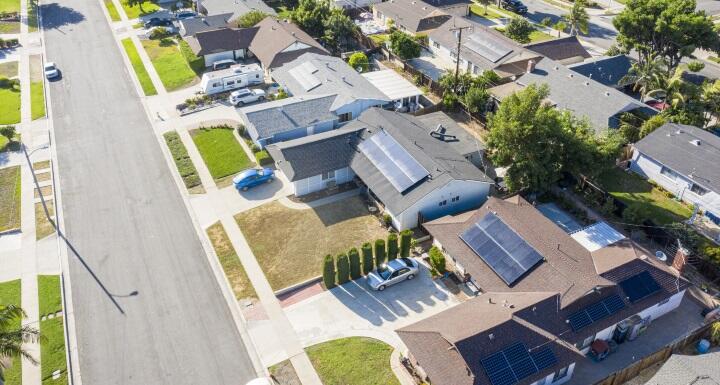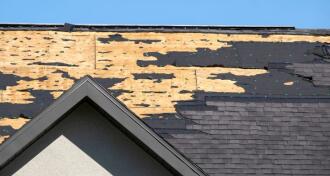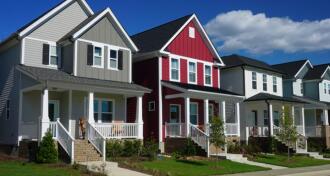Approximately twenty-five percent of North Carolinians live in a planned community where the restrictive covenants are administered by a homeowners association ("HOA").
If you live in North Carolina, you likely have read or heard stories about HOAs prohibiting members from installing solar panels on their properties or of members being sued by their HOA for doing so. But, can an HOA regulate and prohibit the installation and use of a residential solar power system upon private residential lots within the community? A recent North Carolina Supreme Court case has just changed the answer to this question.
Use of Solar Resources Encouraged
Generally speaking, the State of North Carolina encourages the development and use of solar resources by prohibiting deed restrictions, covenants, and other similar agreements that prohibit, or have the effect of prohibiting, the installation and use of a solar power system for a residential property. There are, however, exceptions to this general rule which allow HOAs to regulate the location and screening of solar collectors in a community. See, N.C. Gen. Stat. § 22B-20. The North Carolina Supreme Court recently issued an important opinion interpreting the provisions of N.C. Gen. Stat. 22B-20 and addressing the authority of HOAs to regulate and prohibit the installation and use of solar panels in planned communities: Belmont Ass'n, Inc. v. Farwig, 2022-NCSC-64.
When Does a Covenant or Other Restriction Prohibit the Installation and Use of a Solar Power System
The dispute in Belmont Association arose when Mr. and Mrs. Farwig and Nancy Mainard (collectively, "Farwigs") installed solar panels on the roof of their house without approval from Belmont Association, Inc.'s Architectural Review Committee ("ARC"). The ARC notified the homeowners of the architectural violation, and the homeowners subsequently submitted an architectural request, seeking approval for the solar panels. The ARC denied the request.
Although Belmont Association, Inc.'s governing documents did not specifically address solar panels, they provided the ARC with "the right to refuse to approve any Plans for improvements which are not, in its sole discretion, suitable or desirable for the Properties, including for any of the following: (i) lack of harmony of external design with surrounding structures and environment; and (ii) aesthetic reasons." Relying on this provision, the ARC indicated that it was denying the homeowners' solar panel request on the basis of aesthetic reasons. The ARC suggested that the homeowners move the solar panels to a part of the roof that was not visible from the road, but the Farwigs responded that relocating the panels would significantly reduce solar production and increase the cost. Shortly thereafter, the Association sued the Farwigs, seeking removal of the solar panels and collection of related fines.
The heart of the parties' lawsuit involved the interpretation of N.C. Gen. Stat. § 22B-20. Subsection (b) of that statute states in pertinent part:
Except as provided in subsection (d), any deed restriction, covenant, or similar binding agreement that runs with the land that would prohibit, or have the effect of prohibiting, the installation of a solar collector . . . for a residential property on land subject to the deed restriction, covenant, or agreement is void and unenforceable.
Providing an exception to the above provision, subsection (c) permits a "deed restriction, covenant, or similar binding agreement [that] does not have the effect of preventing the reasonable use of a solar collector for a residential property."
Finally, subsection (d) provides an additional exception, permitting a "deed restriction, covenant, or similar binding agreement that runs with the land that would prohibit the location of solar collectors as described in subsection (b) of this section that are visible by a person on the ground:
- On the facade of a structure that faces areas open to common or public access;
- On a roof surface that slopes downward toward the same areas open to common or public access that the façade of the structure faces; or
- Within the area set off by a line running across the façade of the structure extending to the property boundaries on either side of the façade and those areas of common or public access faced by the structure."
Interpreting this statute, the Court first determined that, even though the governing documents do not specifically reference solar panels, they have the effect of prohibiting the installation of a solar collector under subsection (b) because ARC treated the installation of solar panels as an "improvement," subject to its aesthetic regulation under the governing documents. Accordingly, the Court concluded that ARC's restriction of the use of solar panels was void under subsection (b) unless the exceptions in subsections (c) or (d) applied.
Do the Exceptions to the General Rule Apply?
Turning to the exceptions, the Court next considered whether the ARC's restriction had the effect of preventing the reasonable use of a solar collector under subsection (c). Although the ARC would have allowed the homeowners to relocate the solar panels to a part of the roof that was not visible from the road, it was argued by the Farwigs that the solar panels needed to face southward from the front of the roof to be effective. Accordingly, the Court found that ARC's restriction prevented the reasonable use of solar panels, and the exception in subsection (c) did not apply.
Finally, the Court analyzed whether ARC's restriction fell within the exception in subsection (d). This subsection permits a "deed restriction, covenant, or similar binding agreement that runs with the land that would prohibit the location of solar collectors as described in subsection (b) of this section that are visible by a person on the ground," subject to certain restrictions. The Court highlighted the fact that the phrase "have the effect of prohibiting," which is present in subsections (b) and (c), was notably absent from subsection (d). The phrase's absence in subsection (d), coupled with the fact that the governing documents do not expressly prohibit the installation of solar panels but rather have the effect of prohibiting the installation, led the Court to conclude that the exception in subsection (d) did not apply.
Accordingly, the Court held that ARC's restriction of the use of solar panels violated N.C. Gen. Stat. § 22B-(20)(b).
Conclusion
An HOA may not rely upon general authority from its governing documents to regulate improvements to restrict the installation and use of solar panels. Rather, the governing documents must expressly include a solar power restriction in order for an HOA to regulate solar panels. Such narrowly tailored solar restrictions may prohibit only the location of solar panels that are visible to a person on the ground:
- On the facade of a structure that faces areas open to common or public access;
- On a roof surface that slopes downward toward the same areas open to common or public access that the façade of the structure faces; or
- Within the area set off by a line running across the façade of the structure extending to the property boundaries on either side of the façade and those areas of common or public access faced by the structure.
In the event your Community Association needs legal guidance on disputes arising from the installation and use of residential solar power systems or otherwise, contact our Community Association Practice Group.








